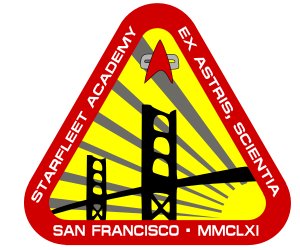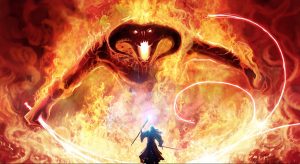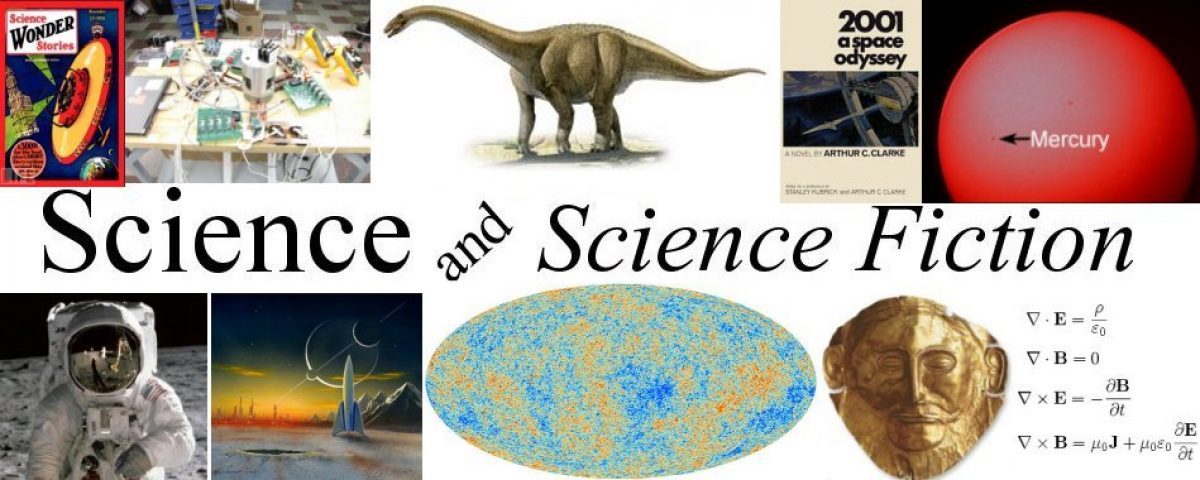In my previous installment of ‘What is Science Fiction’ I completed our survey of what I like to call the six ‘Great Themes of Science Fiction’. Now what I’d like to do in this last post is to carry out an examination of the differences between Science Fiction and Fantasy.
Most of the time it’s rather easy to tell one from the other. We know that Andy Weir’s ‘The Martian’ is Science Fiction because it deals realistically with the conditions both on Mars, the rarefied air and extreme cold, and in outer space, zero gravity. Also, the technology in ‘The Martian’, whether it be the spaceship’s ion engines or the living habitats on Mars are solidly based on the technology we presently have.

On the other hand, in ‘The Lord of the Rings’ by J. R. R. Tolkein the way a ring of invisibility or a sword that glows when bad guys are near work is never explained or even discussed, they’re just magic.

To me that’s the cardinal difference: In Science Fiction the assumption is that we, and by we I mean both the reader and the characters in the story, are intelligent enough that with time and effort we can understand whatever mysteries or powerful objects there are in the story. Sometimes this assumption is even emphasized by relating the main character’s education. Remember in the original ‘Star Trek’ series how Kirk went to Star Fleet Academy while Spock went to the Vulcan Science Academy, that’s where they learned how to control their advanced technology. (And remember how Victor Frankenstein learned science at Ingolstadt University)

This expectation of understandability limits the kind of plot twists and deus ex machina that the author can get away with in Science Fiction because everything has to feel natural, understandable.
In Fantasy however, the assumption is on the supernatural element, Gandalf and Sauron have magical powers because they are themselves magical. We never learn where Gandalf learned his magic, he just is magic.
Frodo can never understand how the one ring works simply because he is natural and it is supernatural. This means that in Fantasy the author has fewer restrictions on how to get his characters into and out of danger. Just have a Balrog appear and only later reveal that Gandalf was of course stronger than the Balrog was anyway, it’s all magic after all.

But now let’s a moment and consider ‘Star Wars’ for example. Certainly it has elements that are straight out of Science Fiction, spaceships, robots (O’k they’re called droits, so what?) and laser weapons. However it also has an all pervasive ‘Force’ that gives certain characters power that the others don’t have for no obvious reason and at the same time it seems like every planet has a breathable atmosphere and normal, that is Earth gravity.

This is intentional, when George Lukas first conceived of his epic he wanted a smooth blend of realism and mythology and that has certainly been one of the prime reasons for the saga’s enduring popularity.
It seems obvious therefore that any attempt to draw a hard line between Science Fiction and Fantasy would just be a waste of time. Instead let’s just take pleasure in both genres while promoting the best Science Fiction.
This brings to an end my little seminar on Science Fiction; I hope you all enjoyed it. Let me know what you thought and I look forward to reading your comments.
